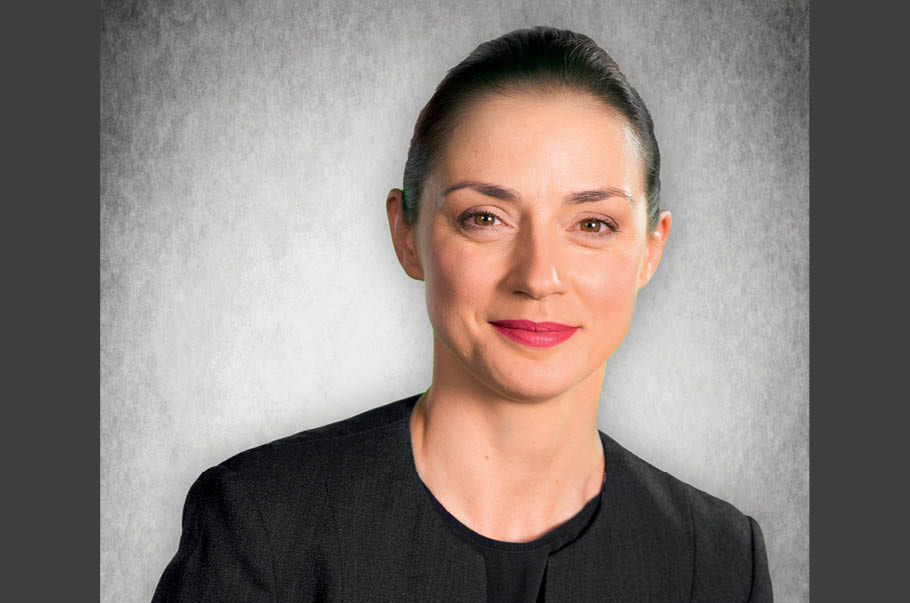We started our export activities as early as mid-1990s. We implement our export policy consistently, first through the development of distribution, followed by – depending on what the market shows us – the establishment of branches or intensified cooperation with our trade partners. We support our presence on foreign markets through acquisition projects implemented for many years – in total, we have conducted 19 of them throughout our history, including 11 abroad. The most important ones include the purchase of the juice part of the Walmark company, the market leader of Czech and Slovak juices, nectars and soft drinks under the Relax brand; takeover of Olympos – a leading producer on the juice, nectar and soft drink market in Hungary; purchase of Queen’s – aleading juice producer in Bulgaria; takeover of the shares of the Hungarian company Plusssz Vitamin Kft – the owner of the Plusssz brand and leader on the Hungarian market of effervescent vitamin preparations, as well as Apenta, one of the oldest trademarks on the mineral water market in Hungary; and the takeover of 100% of shares of Arnos – the leading producer on the Romanian pasta market. In 2012, our Group was expanded by leaders of the Romanian cracker and pretzel market – the Salatini and Capollini brands, while in 2016 it was joined by Rio Bucovina, the vice-leader of the Romanian water market. Our latest acquisition abroad has been the purchase of Velingrad natural mineral water in Bulgaria.
Today, our products reach more than 50 countries worldwide and are available on all continents except Antarctica. They hold top positions on markets in many countries, such as Romania, Bulgaria, the Czech Republic, Slovakia, Russia, Turkey, Hungary, Lithuania, Latvia or Ukraine. Our export brands win awards and enjoy positive opinions and trust of foreign consumers. In order to support the sale and awareness of our products, we also participate, on a regular basis, in major international trade fairs abroad.
What barriers have you encountered over the years as you develope your exports on different international markets?
When conducting export activities on such a large scale, it is natural to encounter various barriers and obstacles. Nevertheless, together with our partners, we manage to handle them. I believe that the greatest role in succeeding in exports is played by the product itself and its quality – which is what we are able to offer to potential consumers. No compromises can be made on this issue. Another extremely important factor is the service we offer to our trade partners, and here is where challenges emerge. For instance, while product shipments within the European Union are relatively simple in terms of organization (even though maintenance of a high “service level” in shipments always poses a serious challenge, given the distances), exports to more distant, non-European markets are far from being that easy, requiring, among other things, compliance with specific regulations.
The United Kingdom is an important market for our entrepreneurs. How much will Brexit change this?
We started our adventure with the British market in the “ethnic food corner”, as large trade chains wanted to invite Polish customers to their stores. We have already left that stage behind because we have managed to develop nationwide distribution. This is a growing, interesting market, of high importance to our foreign sales. We do not wish to abandon it. This year, we rather not learn the full picture of how future trade relations between London and the EU would be like, but some uncertainties may still straighten out. Yet I believe there is still hope for “No Brexit”.
Do you plan any takeovers on foreign markets?
Acquisitions are inherent to our strategy. We observe the food market in this respect all the time, both in Poland and abroad. Will there be new takeovers? Time will tell.
Please tell me about the largest investments at Maspex plants – both domestic and foreign.
This year, we are completing an immense investment programme encompassing investments in the area of production and new technologies as well as the construction of modern logistic centres at our plants in Lublin, Łowicz and Olsztynek, and in our foreign companies – in Hungary, Romania and the Czech Republic. The total value of all investments will reach approx. half a billion zlotys. Thanks to investments in modern technology, we will be able to expand our offer and respond even better to the trends and expectations of our consumers. The logistic centre in Tychy and the new ones, in Lublin, Olsztynek and ultimately in Łowicz, are a start of a new quality of logistics 4.0 by Maspex. The implemented investments will help us provide more accurate and comprehensive services to our trade partners. We will be able to deliver our products even quicker and more efficiently. In total, we will have almost 400,000 pallet places at our disposal and we will be able to prepare as much as 20,000 pallets per day for shipment and loading, with an annual rate of more than 4.5 million. All of our new warehouses will be fully automated and operated around the clock. They will employ state-of-the-art IT systems, along with solutions such as a new way in the process of picking of pallets from storage locations.
What are the main export directions for Maspex Group products? Which ones provide the best prospects?
As I have said before, our products reach more than 50 countries worldwide, and foreign sales account for a third of the company’s consolidated turnover that has amounted to almost PLN 4.3 billion last year. The Central and Eastern European market invariably remains immensely important to us. For a long time, we have been present there with our brands, we have a consolidated position and, above all, this is a large market, which is obviously extremely important from the viewpoint of a food producer. The issues of cultural proximity, as well as similarities in the economic development between the countries of our region, are surely more of assistance than of hindrance to us. Today, our brands occupy leading market positions and enjoy the customers’ recognition in many of them. We owe this situation, above all, to many years’ presence in these countries, a coherent strategy and consistent building of awareness of our brands among the consumer. An important and very helpful fact is that in many countries, we do not just have production plants but professional sales teams as well. Beside the European countries, we also focus on more distant outlets – African, Asian or Arabic countries are of interest to us.
Which of your products from individual categories enjoy most popularity on international markets?
For a long time, our export hit has been the Kubuś brand with which we used to build the shelf of children’s products on many markets from scratch. Kubuś is a brand present on many foreign markets under different names: Kubik, Kubu, or Tedi. The latest hit introduced in the Kubuś product line is a mousse line.
Juices, nectars and soft drinks under the Tymbark brand also sell very well. Another sales hit on foreign markets is the Fruit of the World line by Tymbark (known as Owoce Świata Tymbark on the Polish market), joined by some new product virtually every year. Here, we anticipate the expectations of foreign consumers who expect it from us. This year, we are expanding this line with the Aloe Vera taste, hoping it will bring us the expected sales results, as it was the case with the innovative passionfruit, lychee or mango tastes. Other tremendous sellers are the 0.25l Tymbark soft drinks with crown caps, which have gained a cult status on the Polish market but also found fans as far as South Korea.
Another line undergoing very strong development is the Tymbark soft drink line in 2l cartons – so-called Family Packs. Such tastes as cherry/apple or apple/watermelon (the latter only in the export offer) are undisputed sales hits.
We are also present on many export markets with the La Festa brand – in its portfolio, consumers will find cappuccino, hot chocolate, and 3-in-1 coffee. In countries such as Romania or Russia, due to enormous demand for the products of this brand, we also conduct the manufacturing. There is growing interest abroad in products of the Lubella brand, specifically, in pasta and cereal flakes. We are also increasing our presence with the Krakus brand. Interestingly, the export line of Krakus is richer than the Polish one, with such products as sauerkraut, pickled beets and multi-vegetable salads; beside the UK, they successfully sell in Australia, Sweden and Malta. Products of our other brands, such as Łowicz or Kotlin, are exported too.
Thank you












